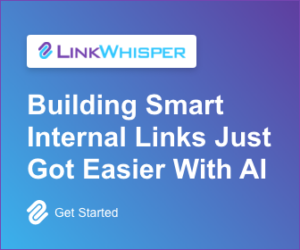Podcasting for Business: Easy Step-By-Step Instructions for Starting a Podcast
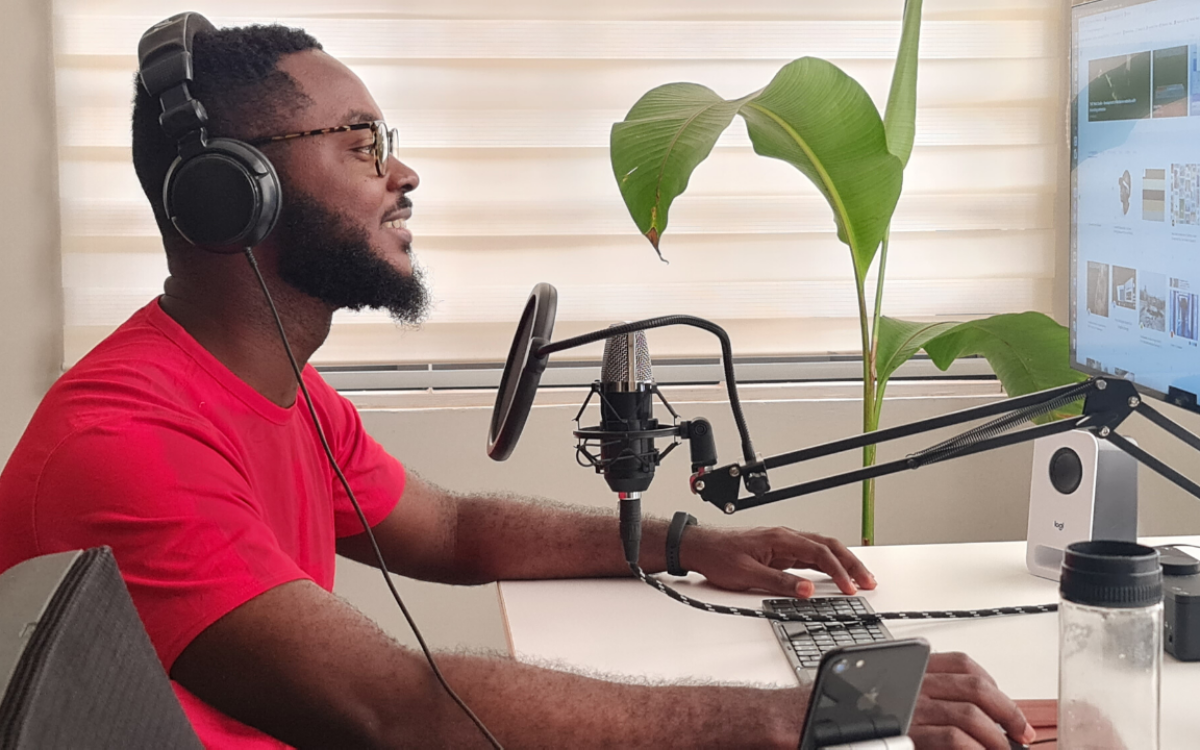
When you buy something through one of the links on our site, we may earn an affiliate commission.
After careful consideration, you've decided to start podcasting for business!
Starting a business podcast is a great way to reach potential customers and boost your digital marketing strategy.
Continue reading to learn our top tips for starting a podcast.
Contents
- Tips for Starting a Podcast
- The Benefits of Podcasting for Business
- Should a Business Have a Podcast?
- Podcasting for Business: How to Start a Podcast
- Step-By-Step Instructions for Starting a Podcast
- Choose Your Topic
- Pick a Format
- Decide on a Podcast Name
- Write Your Podcast Description
- Compile a List of Podcast Guests
- Design Your Show Artwork
- Choose Your Intro and Outro Music
- Obtain a Hosting Service
- Set Up Your Podcasting Equipment
- Record and Edit Your First Episode
- Publish Your Business Podcast Episode
- Marketing Your Business Podcast
- Final Thoughts on Starting a New Podcast for Your Business
Tips for Starting a Podcast
Here are our tips for how to start a successful podcast as a small business owner:
- Know that you will receive negative, critical, and sometimes hurtful feedback on your podcast no matter what. While this can be upsetting, especially when you're first starting out, don't let it hinder your motivation and excitement.
- Understand your true motivations and reasons behind starting a podcast. This will help you on tough days and late nights.
- Make sure that the podcast topic you choose is one that you can stick to long-term.
- Focus on creating a quality set up, but don't feel like you need to overspend on the most expensive recording software and equipment.
- While some hosts can make it feel carefree and spontaneous, podcasting takes a great amount of planning, effort, and consideration. It's not an effortless endeavor.
- While planning your research, content, and recording schedules, you should also be creating a detailed marketing campaign for your podcast to promote it leading up to and after its launch.
Let's dive deeper into each podcasting tip for your business.
You Will Receive Negative Feedback
When you've spent a large amount of time, energy, effort, and maybe even money on your new podcasting endeavor, receiving negative feedback can feel deeply personal.
When creating podcasts, it's important to remember that you will receive negative feedback no matter what. You will never please every listener.
Instead of looking at criticism as a negative thing, take it as an opportunity to learn, grow, and improve your episodes overall. While some comments will be irrelevant, some of them will contain helpful pointers for improving future episodes.
This tip applies not only to podcasts, but also to any business or creative endeavor you undertake.
Know What Motivates You
When you're spending extra time editing your episodes, reading a negative review, or receiving rejection emails from potential guests, remember your main motivation for wanting to become a podcaster in the first place.
Your core motivations and values should be your driving force behind why you're podcasting for your business. If the process starts to feel complicated and cloudy, focus on the ways you provide value to your audience.
When you're having a day that makes you question why you created podcasts, remember why you got started.
Choose a Topic You Won't Get Tired Of
Choosing a topic is one of the most important parts of starting podcasts. Deciding on a topic that you have a genuine and intense interest in will be a key component of the long-term success of your show.
You will want to pick a topic that truly interests you and also offers a wide range of potential discussion points.
Being able to talk about your topic long-term, offer valuable insight on it, and thoroughly discuss from a new viewpoint will help you always have fresh content for every episode.
There are so many podcasts available to listen to today (check out these interesting podcast statistics), and you want to make sure that you're offering value with your unique viewpoint from the very start.
Create a Quality Set-Up But Don't Overspend
While it might be tempting to buy the latest and greatest podcasting equipment, you don't need to overspend in order to create a quality show that you're proud of.
If you're feeling this pressure, don't feel like you need to succumb to it. You can still create high quality content without shattering your marketing budget.
There is a wide range of equipment and software options to choose from that offer different price points and audio qualities. Spend what you are comfortable with in order to achieve the results you are looking for.
As your podcast becomes more successful and starts bringing in additional revenue, you can scale up your podcasting set-up. The more revenue you start earning from your podcast, you can slowly start upgrading your microphone, editing software, and other recording equipment.
Podcasting is Time-Consuming and Effortful
Just because successful podcasters make it look easy doesn't mean that it is.
While recording is such an important part of creating podcasts, there are so many other aspects to this type of content creation that will take up your time.
Researching topics, reaching out to potential guests, editing the audio, writing show notes, and promoting your show will take up the majority of your time.
These tasks can be seen as less glamorous and less entertaining, depending on the type of work you like to do, but they are just as important as the recorded audio.
Don't let the short nature of podcasts fool you into thinking that it's not a time-consuming endeavor.
Craft Thoughtful Marketing Campaigns
It doesn't matter if you've interviewed the best guests, recorded the best episodes, or designed the most eye-catching thumbnail if no one knows your podcasts exist.
Having a detailed marketing plan will help you effectively promote your podcasts, attract new listeners, and ultimately earn higher revenue payouts.
Take as much time, care, and effort to market your podcast as you did planning, recording, and editing it.
The Benefits of Podcasting for Business
Using podcasts as a marketing tool is a great method for reaching a wider audience, supplementing the written content on your website, and boosting traffic generation efforts.
There's a long list of benefits of podcasting for business, including:
- Allowing businesses to create an intimate relationship and more personal connection with their target audience.
- Having fun! Recording a podcast, interviewing thought leaders, and forming a connection with your audience should be a fun and enjoyable experience for small businesses.
- Delivering an engaging form of education and entertainment that can easily be consumed. Podcasts can be consumed with less effort compared to video and social media. They can be listened to in the car, at the gym, while cleaning the house, etc.
- Offering a low barrier to entry. In some cases, businesses might even already have audio files that they can easily repurpose into a podcast.
- Providing an alternative to video. While an SEO focused video marketing strategy is important, podcasts provide an engaging alternative for brands to recording video. Podcasts are also a great option for people who might not want to be on video.
- Supplying small businesses with another method for increasing the number of revenue streams and boosting revenue overall.
- Giving entrepreneurs another avenue for traffic generation.
- Creating content that can easily be repurposed. You can record video of your podcasts live and repurpose this on your YouTube channel and other social media channels (get inspired with the best podcasts on YouTube here).
- Establishing yourself as a thought leader in your niche.
Should a Business Have a Podcast?
The short answer is, it depends.
Even though we now understand the many benefits to starting a podcast for your business, the decision to start a podcast is not a simple yes or no answer.
It should involve a nuanced conversation around what you want the topic to be, whether or not you actually enjoy speaking in a podcast format, what value you want to bring to your audience, and how you want your business to grow from this podcast.
What to Consider Before Starting a Podcast for Your Business
There are many factors behind the decision to start a podcast for your business.
The factors it depends on include:
- How much time you have to dedicate to researching, planning, recording, editing, publishing, and marketing your podcasts. If you don't have the proper time to dedicate to doing it right, there's no point in doing it at all.
- Whether you or someone in your organization enjoys speaking, debating, and further exploring the topic of your podcasts. If you don't enjoy it, the quality of the content will most likely suffer. Your audience can tell whether your heart is in it.
- If your audience can be reached through podcasts. Based on your research, if you determine that the audience you're trying to target isn't very active in the podcast space, perhaps starting a podcast isn't the most efficient choice for your business.
- What your marketing budget for this new endeavor would be. Do you have the budget to spend on a new microphone, software, recording space, and hosting? While you don't need a huge budget to start podcasting, you'll still want to make sure you have the necessary equipment to be able to create high-quality podcasts.
These discussion points are meant to help you make an informed decision before you start planning, recording, and promoting podcasts.
If you're looking to grow as an entrepreneur, check out our list of the best business podcasts to help get you started.
Podcasting for Business: How to Start a Podcast
The decision to start a podcast is exciting, however the excitement shouldn't overshadow the execution.
Step-By-Step Instructions for Starting a Podcast
Here are the step-by-step instructions on how to start podcasting for business:
- Choose your topic.
- Pick a specific format for your podcast.
- Decide on a podcast name.
- Write your podcast description.
- Compile a list of guests to interview on your business podcast, if applicable.
- Design your podcast thumbnail and show artwork.
- Choose or create your intro and outro music.
- Decide on and obtain a hosting service.
- Set up your podcasting equipment, including a high quality microphone, and obtain the necessary recording software.
- Record and edit your first episode!
- Publish your recorded podcast episodes, making sure to include important information for your audience in the show notes.
- Start marketing your business podcast.
Let's further explore each step to gain a more thorough understanding of how small business owners can start podcasting.
Choose Your Topic
The first and arguably most important step in starting podcasts is choosing a topic. You want to choose a topic that you're genuinely interested in, can talk about long-term, and can provide a valuable viewpoint on.
If you can create a list of more than 50 podcast episodes on the topic you chose, that's a good indication that you've picked a topic that truly interests you and also has a lot of possible discussion points. If you can't come up with at least 50 episode ideas, you might want to reconsider your topic.
There are what feels like a million podcasts on the topic of business, so you'll need to find your unique angle in this topic and determine from the start how you're going to provide value in this space.
For example, the podcast, The Diary of a CEO with Steven Bartlett focuses on providing valuable information about owning a business by interviewing guests with a variety of experiences and backgrounds. The podcast host interviews founders, influencers, authors and more about what it's like to be an entrepreneur.
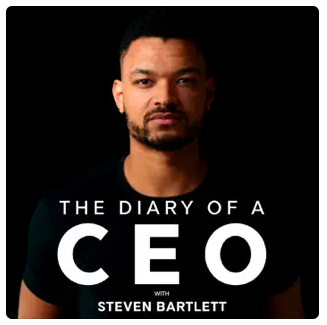
While the category of business podcasting is broad, The Diary of a CEO was able to find a specific sector of interviewing thought leaders and providing advice from an experienced and nuanced viewpoint.
This topic is more narrowed down, but it still provides ample opportunity for creating content.
This business podcast has more than 150 episodes on Apple Podcasts and is still continuing to grow.
Pick a Format
Now that you've decided on the topic for your own podcast, next you'll want to think about its format.
Before picking a format for your podcast, here are a few aspects to think about:
- How long is each recorded podcast episode going to be?
- Do you plan on having any guests, or will you alone be speaking directly to your target audience?
- How frequently are you going to publish your podcast?
Here are a few different ideas for format options for you to consider when creating your own podcast:
- Solo episodes
- Co-hosted episodes
- Interview panels
- Telling true stories
- Podcast theater
- One-on-one interviews
- Fictional storytelling
- Repurposed content
No matter which format you choose for business podcasting, or even if you create your own unique format not listed here, you want it to be authentic to your business, provide value within the category, and effectively engage your audience.
Decide on a Podcast Name
The name of your podcast is one of the main building blocks of your brand. It's important for enticing your listeners to want to listen to your podcast, creating a memorable brand image in their mind, and setting the tone for what content you're going to create.
Your podcast logo, artwork, and marketing strategy will be centered around your podcast name. Be intentional about the name that you choose and how you want your brand to be represented.
Oftentimes, your podcast name might be the same name, or some variation of, your business name. This is a great tool for boosting brand recognition across a wider audience.
For more insight into choosing a podcast name, we have a list of podcast name ideas here or you can use a podcast name generator.
Write Your Podcast Description
Where the podcast name and artwork is the first impression, your podcast description tells your listeners the information and extra details they need to know about your podcast.
The podcast description provides business podcasts with the opportunity to further entice their audience to listen to their first episode.
While the podcast name and artwork tells the initial story of what your podcast is about, the description should answer any remaining questions they might have. If your description matches what they're looking for, listeners tune in to your podcast based on the interest you've created from your description.
Tips for Writing Your Podcast Description
Here are our tips for writing an effective, engaging, and high-quality podcast description:
- Write for your target audience. This starts with truly understanding who they are, their pain points, interests, and wants.
- Provide all of the necessary information, but also make sure your writing is concise.
- After you've described your podcast, you can add important information about yourself- but only if it's relevant and adds value for your audience.
- Would the description you're writing entice you as a listener if this was someone else's podcast? Would it also entice you to share it with your friends and family? Will it entice podcast listeners period?
Keeping these points in mind when writing your description will help small businesses set their podcasts up for success.
Let's review a few examples of podcast descriptions from other podcasts:
The below example also comes from The Diary of a CEO with Steven Bartlett. His description is long, detailed, and informative. It provides background information about the host, but it's relevant to telling the story of how he offers value as the host of this podcast.
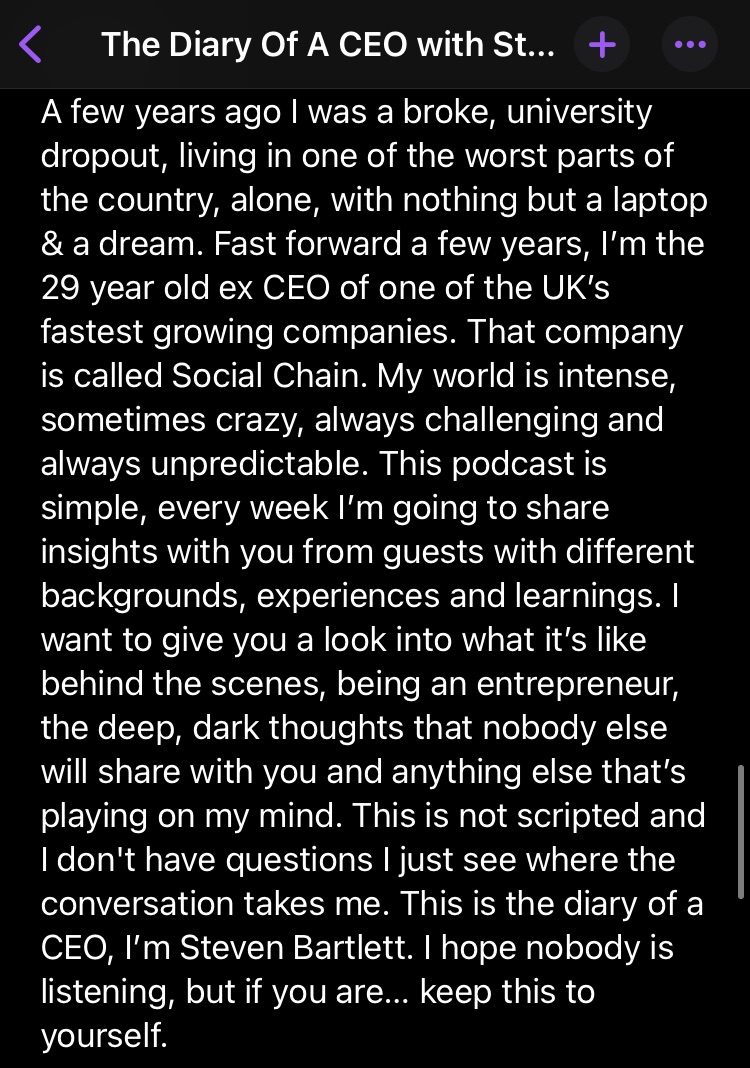
In contrast to the lengthy example above, let's review a description that is short and straight to the point.
This description still provides personal information about the host, but it is brief and succinct. It simply states her qualifications along with a very straightforward explanation of the podcast.

This next example is even more brief than our previous example.
The Maintenance Phase podcast description is only one sentence long. It does not include any information about the hosts. While it may be brief, it's still informative and effective.
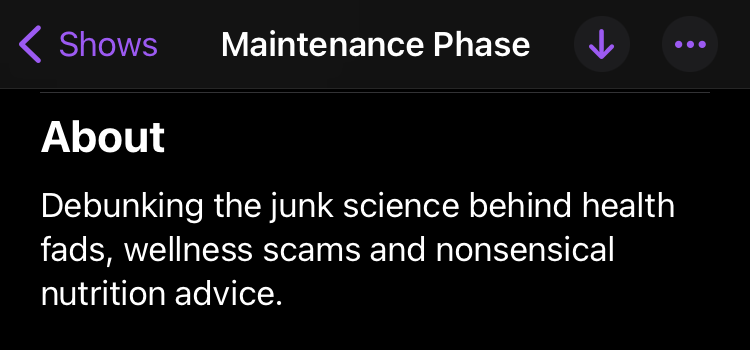
Here is an example of Niche Pursuits' detailed podcast description:
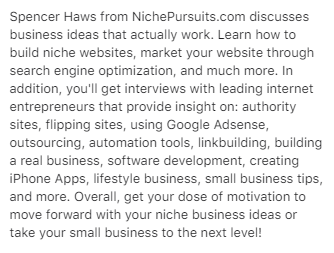
After reviewing a few different examples that vary in details, length, and personality, it's now up to you to decide which style works best for your business podcast.
Compile a List of Podcast Guests
If you do not plan on interviewing guests or having guest co-hosts, you can skip this step.
If you do plan on interviewing people, having guest panels, or guest co-hosts, do not skip this step.
Putting together a list of guests for your podcasts will help you stay organized when planning out your content schedules, recording your content, and communicating with guests about potential appearances.
Similar to the way brainstorming episode ideas for your topic helps ensure you've picked a good topic, compiling a list of podcast guests also helps you make sure you've picked a viable idea.
If you want to interview people for your podcasts but can only come up with a short list of 10 people, you might want to expand your search or reconsider the subject of your podcast episodes.
Design Your Show Artwork
Your podcast name is very important, but your show artwork is what truly creates a first impression with your audience.
Your show artwork is what separates your podcast from the rest of the bunch when listeners are browsing the charts and searching for their new favorite podcast.
Do you want your podcast to come across as serious or lighthearted? Humorous or inquisitive? Approachable or aspirational?
Whether you're designing it yourself, working with your marketing department, or collaborating with a graphic designer, here are a few things to consider when designing your artwork:
- What are your brand's colors, fonts, and imagery?
- Would you like to include a picture of yourself in the cover artwork?
- What is your business's personality?
- Does the artwork look good as a small thumbnail on Google Play and Apple Podcasts?
Here are the best freelance graphic design sites to help you find a qualified designer.
Podcast Artwork Examples
From eye-catching typography to colorful graphics, here are a few examples of effective podcast thumbnail artwork shown how they appear on a mobile device:
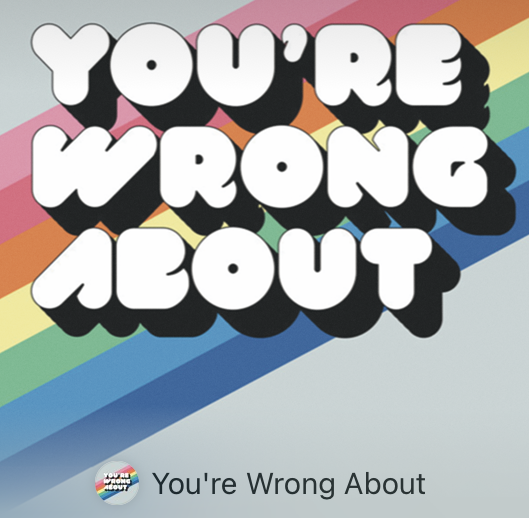
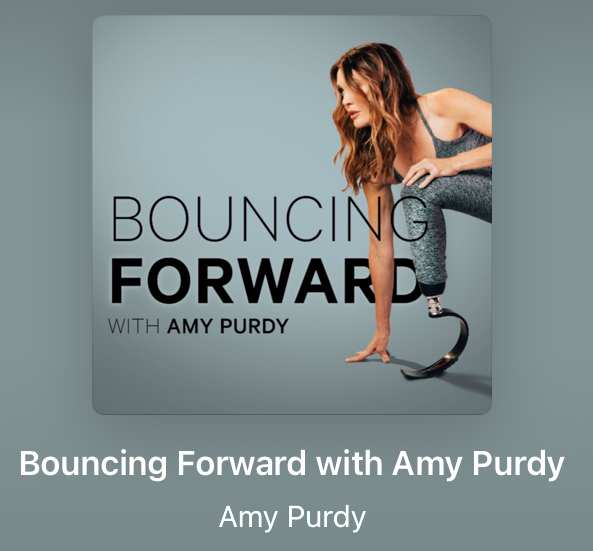

Here is what Niche Pursuits' thumbnail artwork looks like:
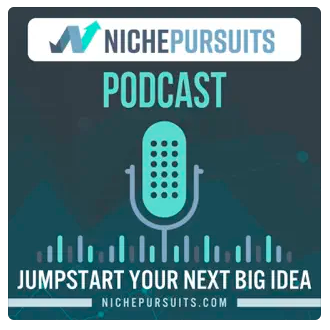
Choose Your Intro and Outro Music
In order to make your business podcast sound more polished and professional, you are probably going to want to include intro and outro music.
This music will set the tone for your podcast from the second listeners tune in. From energetic to calming, there are seemingly endless musical options to choose from.
Your outro music will also give your audience a specific feeling as your podcast ends. You can use it as background music while you're reading the credits to your audience, such as listing your social media platforms or reiterating your unique codes for various affiliate offers.
When picking music for your podcast, consider how you want your audience to feel at the start and end of your podcast.
Obtain a Hosting Service
The main benefit of using a podcasting hosting service is that you only have to upload your podcast to one place.
Instead of uploading your podcast directly to Apple Podcasts or Google Podcasts, you'll upload your podcast episode directly to your podcast hosting provider. They will then distribute your podcast on your behalf.
Popular podcast hosting services include:
- Buzzsprout
- Podbean
- RSS.com
- Resonate
- Soundcloud
- Captivate
- Transistor
Hosting providers can also set you up with podcast ads to help you diversify your income streams from effectively engaging your podcast listeners. For more information on how to start a podcast and make money, we have a guide here.
Our list of the best podcast hosting solutions can help you decide.
Set Up Your Podcasting Equipment
When podcasting for business, your recording software, editing software, and equipment will determine the quality of your audio files.
However, this doesn't mean that you need to invest in the most expensive equipment in order to yield high-quality results.
Your set up is going to depend upon your podcast format, episode length, how many people will be recording, and whether or not you're recording remotely or in-person.
Which USB microphone you use is going to be the most important purchasing decision you make because it will determine the quality of your audio file.
There are a variety of different microphone types to choose from, and you'll have to make the decision based on your budget and podcast format.
Record and Edit Your First Episode
After you've done all of the behind-the-scenes work of brainstorming, planning, and creating your podcast, it's time to record audio files for your first episode!
This is a fun and exciting milestone in your business podcasting evolution.
Editing can feel difficult and daunting at first. Once you've edited a few episodes you will start to find your footing and become better at it.
Publish Your Business Podcast Episode
Now that you've recorded and edited your new episode, it's time to publish it!
Let the world hear what your business has to say.
This step is where you would publish your episode on the podcasting provider discussed in one of our previous steps.
Make sure to include relevant information and important details about the episode and your business in the show notes. You want your potential customers to know where they can find you.
Marketing Your Business Podcast
After you've put your new episode out into the world, it's time to promote your business podcast with an excellent marketing strategy!
Here are a few tips and marketing tools for promoting your new business venture:
- Market the launch of your business podcast in a similar way that you would market an event or new product launch.
- Create separate social media accounts for your podcast, taking advantage of the value different channels like TikTok and Twitter bring to the table.
- Cross-promote by posting on both your personal and business social media channels about the launch of your podcast.
- Share your first episodes with family and friends. Networking is a powerful tool for promoting your new podcast.
Final Thoughts on Starting a New Podcast for Your Business
You've decided to start podcasting for your business, gained a deeper understanding of its benefits, and explored step-by-step instructions on how to start. We hope you feel prepared and excited to become part of a group of successful podcasters!
Want to learn step-by-step how I built my Niche Site Empire up to a full-time income?
Yes! I Love to Learn
Learn How I Built My Niche Site Empire to a Full-time Income
- How to Pick the Right Keywords at the START, and avoid the losers
- How to Scale and Outsource 90% of the Work, Allowing Your Empire to GROW Without You
- How to Build a Site That Gets REAL TRAFFIC FROM GOOGLE (every. single. day.)
- Subscribe to the Niche Pursuits Newsletter delivered with value 3X per week
My top recommendations










